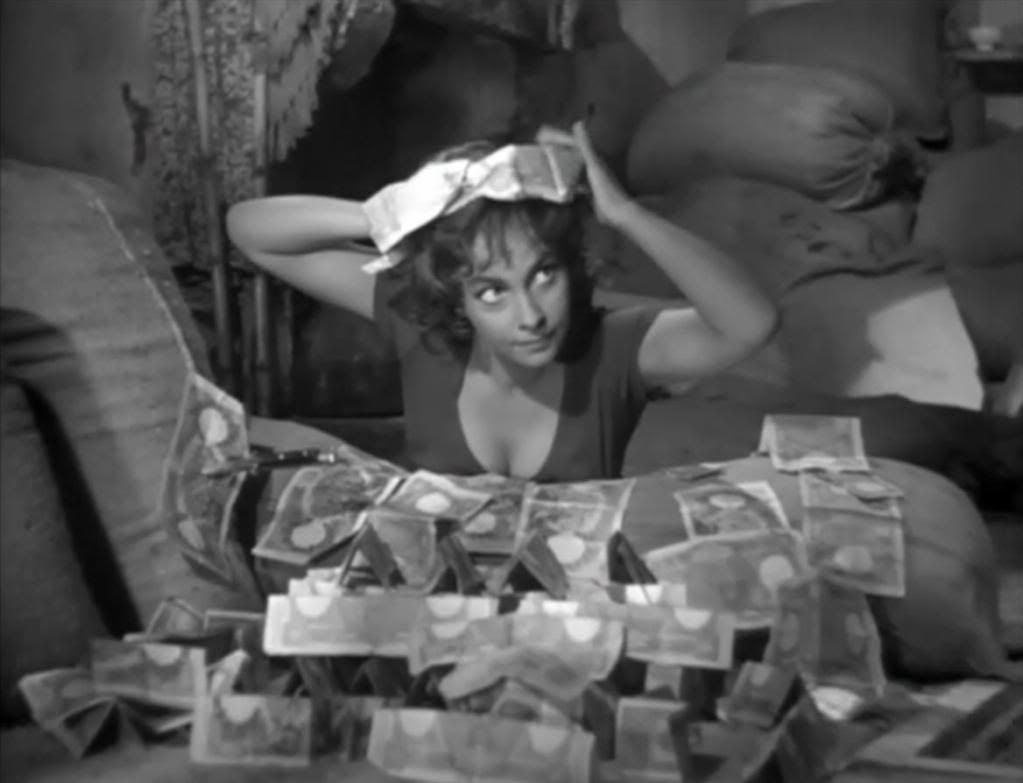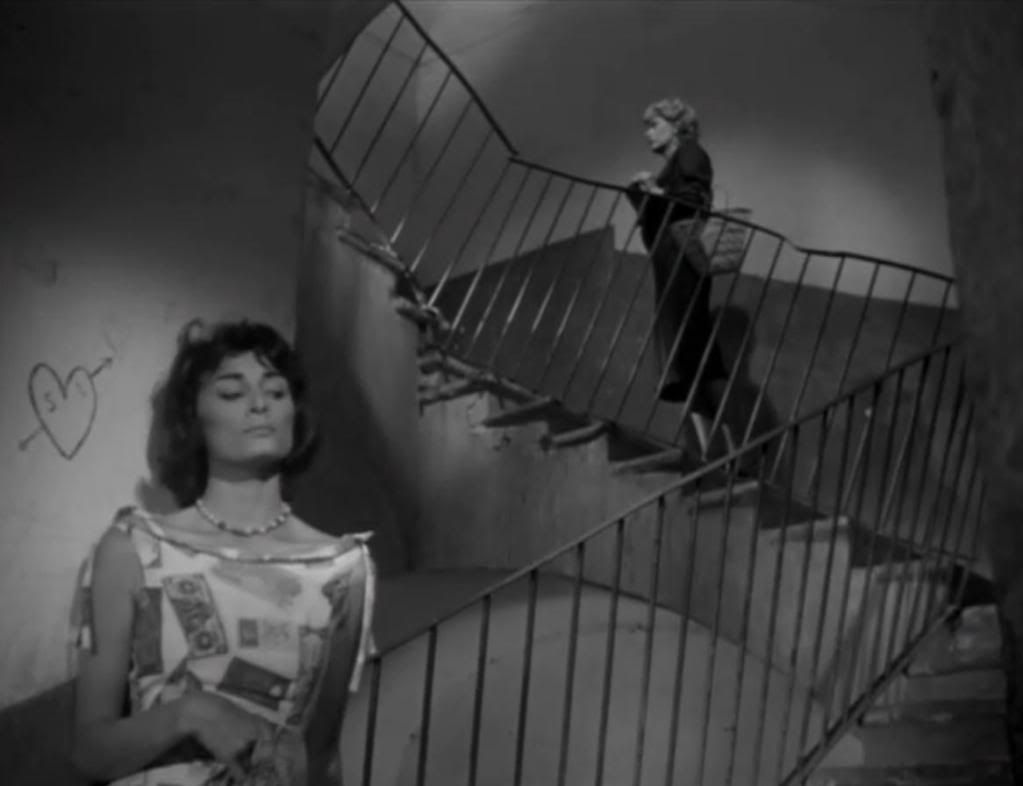
Jules Dassin's The Law is a very strange, disjointed movie. A Franco-Italian co-production, set in a small Italian fishing village and starring mostly Italian actors, it is nevertheless dubbed into French, which gives one some idea of the rather odd sensibility at work here. Dassin, exiled from Hollywood after the Communist witch hunts of the 1950s, was just a few years past his first French film, the masterpiece Rififi, but The Law has little in common with that film or the tense noirs of his Hollywood period beyond a rigorous, visually sharp sensibility.
Here, Dassin applies that sensibility to a soapy melodrama adapted from a Roger Vailland novel, resulting in an uneven, tonally varied, sporadically engaging work that bounces unpredictably from cynical satire to fluffy sex comedy to over-the-top melodrama. The film is concerned with power and authority, focused on the passing of the old guard, represented by the ailing gangster boss Don Cesare (Pierre Brasseur), and the arrival of a new guard, as represented by both the would-be new boss Matteo Brigante (Yves Montand) and the government land surveyor Enrico Tosso (Marcello Mastroianni). This struggle is represented in terms of power, control, wealth and respect, but also sexuality, in the battle for the affections of Marietta (Gina Lollobrigida), the vivacious, voluptuous local beauty who all the men want.
Unsurprisingly, Lollobrigida's Marietta is the focus of the film even though there are so many subplots and intrigues going on among the other characters. Everyone seems to be engaged in clandestine amorous meetings and conspiracies, but despite the sprawling cast and meandering narrative flow, the sensual, provocative Marietta always feels like the center of it all. Lollobrigida gives a lively, spirited performance, and even the dubbing of her voice doesn't really matter, because it's a physical performance first and foremost, a performance of the body. She projects raw sexuality, and Dassin's camera obviously loves her curvy form, her cleavage-baring dresses, and the vibrant, emotionally tumultuous personality that mirrors her unbelievable form. In many ways, the film is a typical sex comedy vehicle for the considerable charms of the lead actress, who naturally steals all attention like a magnet whenever she's onscreen.

This obvious reveling in Lollobrigida's sexiness aside, there's more to the film than just another sex farce. Dassin's aesthetic is as well-defined as ever, and his probing camera swoops and glides around this small town, uncovering all the corruption and adultery that seem to be hiding in every dark corner and behind every slatted window. As Dassin's camera tracks from one window to the next in an apartment building at the beginning of the film, there's a noirish atmosphere to the rigidly posed, shadowy dioramas of distrust and discontent found behind each window. Every marriage here is unhappy, especially the one between the local judge and his wife Lucrezia (Dassin's future wife Melina Mercouri), who are seen behind slatted shutters that cast their room in barred, segmented darkness like they're locked in one of the cells in the prison just next door. There are surreptitious romantic meetings in stairwells ringed by twisted, jagged metal rails, and everything is rendered in hard lines.
The frame is constantly being segmented in this fashion: when Lucretia goes to see her young lover Francesco (Raf Mattioli), he's working on a fishing rig that criss-crosses the frame with complex patterns of lines from all the wires and beams running across the structure. This noir visual aesthetic is very well suited to portraying the cynical obsession with power in this town where they play a gambling game called "the law" that's built around humiliation and using one's (temporary) power within the game as a weapon against everyone else.
The film's grittier moments are counterbalanced by a goofy musical number in which a gang of local kids serenades Brigante with a tribute to his toughness and power. In another scene, Marietta and Enrico frolic in the water together, a scene that might've been sexy — and still kind of is — but is rendered hilarious by the presence of a flock of sheep who are also bathing all around the young lovers. It might say something that this is their best scene together: their relationship is never especially credible, and Mastroianni is wasted in general, given an underdeveloped character whose place in this narrative is never clearly defined. It's frequently obvious, at times like this, that Dassin is adapting a novel and trying to cram in too much of its text, so various threads within the story are left dangling. The film's a bit of a mess all around, but despite the stereotyped characters and tonal inconsistency, it's worth seeing for Lollobrigida's sexy mugging and the visual rigor with which Dassin traces the film's sexual and political power struggles.
Hi, I watched this film The Law. its really interesting and i enjoyed watching it.
ReplyDeleteGet More Instagram Followers